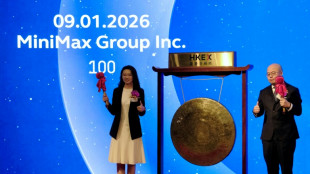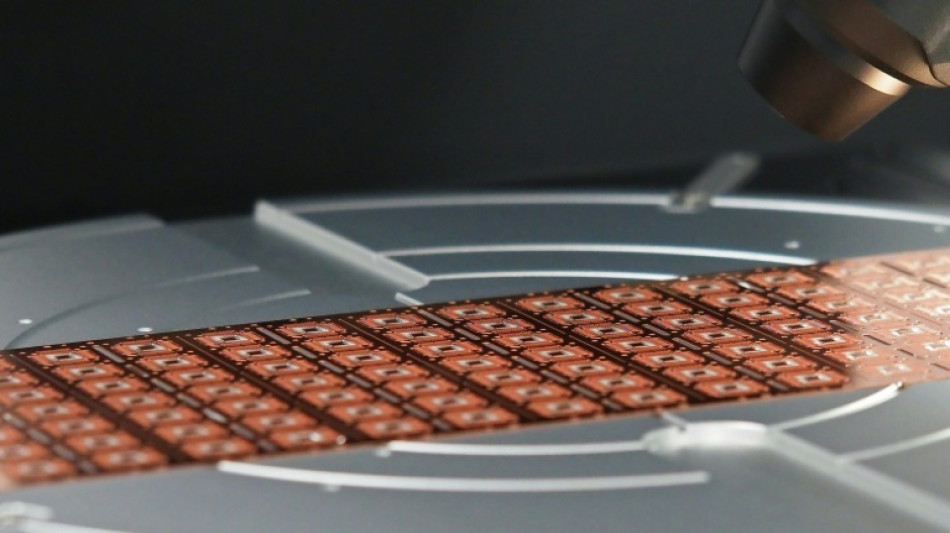
-
 Rams survive Panthers scare to advance in NFL playoffs
Rams survive Panthers scare to advance in NFL playoffs
-
Rallies across US after woman shot and killed by immigration agent

-
 Egypt dump out holders Ivory Coast as Nigeria set up AFCON semi with Morocco
Egypt dump out holders Ivory Coast as Nigeria set up AFCON semi with Morocco
-
Rosenior salutes 'outstanding' start to Chelsea reign

-
 Maduro loyalists stage modest rally as Venezuelan govt courts US
Maduro loyalists stage modest rally as Venezuelan govt courts US
-
Byrne late penalty fires Leinster into Champions Cup last 16 after 'ding-dong' battle

-
 Rosenior makes flying start as Chelsea rout Charlton in FA Cup
Rosenior makes flying start as Chelsea rout Charlton in FA Cup
-
Rallies across US against shooting of woman by immigration agent

-
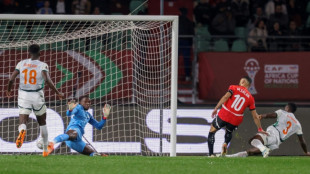 Salah closer to AFCON glory as Egypt dethrone champions Ivory Coast
Salah closer to AFCON glory as Egypt dethrone champions Ivory Coast
-
O'Neil ends 'crazy three days' with Strasbourg cup canter
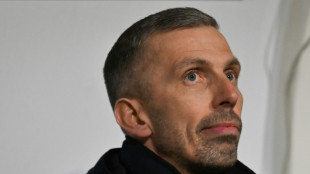
-
 Mitchell leads Cavs over T-Wolves
Mitchell leads Cavs over T-Wolves
-
O'Neil ends 'crazy few days' with Strasbourg cup canter
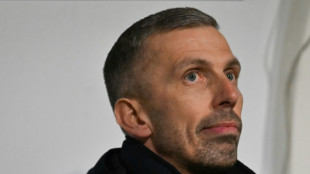
-
 Argentina wildfire burns over 5,500 hectares: governor
Argentina wildfire burns over 5,500 hectares: governor
-
Byrne late penalty fires Leinster into Champions Cup last 16

-
 Roma beat Sassuolo to close in on Serie A leaders Inter
Roma beat Sassuolo to close in on Serie A leaders Inter
-
Villa's FA Cup win at Spurs leaves Frank on the brink

-
 Osimhen focused on Nigeria glory not scoring record
Osimhen focused on Nigeria glory not scoring record
-
Undav calls shots as Stuttgart thump Leverkusen

-
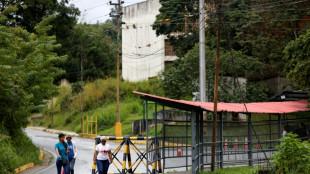 Venezuelan prisoners smile to hear of Maduro's fall
Venezuelan prisoners smile to hear of Maduro's fall
-
Thousands of Irish, French farmers protest EU-Mercosur trade deal

-
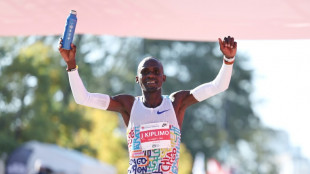 Kiplimo captures third straight world cross country title
Kiplimo captures third straight world cross country title
-
Osimhen leads Nigeria past Algeria into AFCON semi-finals

-
 US urges fresh talks between Syria govt, Kurds after deadly clashes
US urges fresh talks between Syria govt, Kurds after deadly clashes
-
Weekend of US protests after woman killed by immigration agent

-
 Monaco cling on with 10 men to avoid French Cup shock
Monaco cling on with 10 men to avoid French Cup shock
-
Rooney close to tears as brother masterminds FA Cup history

-
 Semenyo scores on Man City debut in 10-goal rout of Exeter
Semenyo scores on Man City debut in 10-goal rout of Exeter
-
Villarreal sink Alaves to stay in La Liga hunt

-
 Bristol, Glasgow reach Champions Cup last 16
Bristol, Glasgow reach Champions Cup last 16
-
Freiburg beat 10-man Hamburg to climb to eighth in the Bundesliga

-
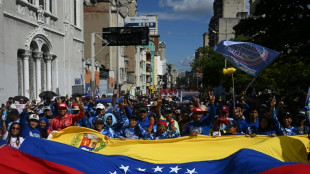 Venezuela loyalists to rally one week after Maduro's capture
Venezuela loyalists to rally one week after Maduro's capture
-
Syrian authorities transferring Kurdish fighters from Aleppo to northeast

-
 Football: Five memorable FA Cup upsets
Football: Five memorable FA Cup upsets
-
Odermatt warms up for Winter Games with Adelboden giant slalom win

-
 Benin showcases culture with Vodun Days
Benin showcases culture with Vodun Days
-
Iran crackdown fears grow as protests persist

-
 Odermatt wins Adelboden giant slalom for sixth World Cup success of season
Odermatt wins Adelboden giant slalom for sixth World Cup success of season
-
Holders Crystal Palace stunned by Macclesfield in biggest ever FA Cup shock

-
 Odermatt wins Abelboden giant slalom for sixth World Cup success of season
Odermatt wins Abelboden giant slalom for sixth World Cup success of season
-
Poland reach United Cup final despite Swiatek loss to Gauff
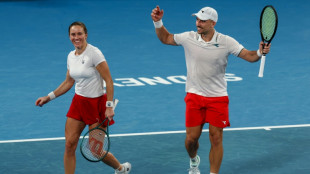
-
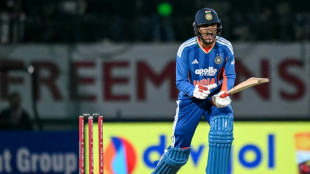 India's Gill calls it 'destiny' after shock T20 World Cup snub
India's Gill calls it 'destiny' after shock T20 World Cup snub
-
'Driven' Vonn storms to 84th World Cup win in Austrian downhill

-
 Syrian army says stopping Aleppo operations, but Kurds deny fighting over
Syrian army says stopping Aleppo operations, but Kurds deny fighting over
-
Thousands of Irish farmers protest EU-Mercosur trade deal

-
 Vonn storms to 84th World Cup win in Austrian downhill
Vonn storms to 84th World Cup win in Austrian downhill
-
Anger over fatal Minneapolis shooting fuels US protests

-
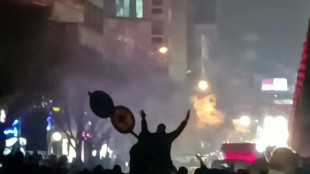 New rallies erupt in Iran as crackdown fears grow
New rallies erupt in Iran as crackdown fears grow
-
Real Madrid not 'kamikaze' with Mbappe health: Alonso

-
 South Africa defends naval drills with Iran, Russia as 'essential'
South Africa defends naval drills with Iran, Russia as 'essential'
-
Alcaraz beats Sinner in sold-out South Korea exhibition match


India ready to rev up chipmaking, industry pioneer says
When Prime Minister Narendra Modi declared India's "late entry" into the global semiconductor race, he pinned hopes on pioneers such as Vellayan Subbiah to create a chip innovation hub.
The chairman of CG Power, who oversees a newly commissioned semiconductor facility in western India, is seen as one of the early domestic champions of this strategic sector in the world's fastest-growing major economy.
"There has been more alignment between the government, policymakers, and business than I've ever seen in my working history," Subbiah, 56, told AFP.
"There's an understanding of where India needs to go, and the importance of having our own manufacturing."
As US President Donald Trump shakes global trade with tariffs and hard-nosed transactionalism, Modi has doubled down on self-reliance in critical technologies.
New Delhi, which flagged its push in 2021, has this year approved 10 semiconductor projects worth about $18 billion in total, including two 3-nanometre design plants, among the most advanced.
Commercial production is slated to begin by the end of the year, with the market forecast to jump from $38 billion in 2023 to nearly $100 billion by 2030.
Subbiah, whose CG Power is one of India's leading conglomerates, predicts "over $100 billion, if not more", will flow into the industry across the value chain in the next five to seven years.
He said "symbiotic" public-private partnerships were "very exciting".
-'Ability to accelerate'-
Chips are viewed as key to growth and a source of geopolitical clout.
India says it wants to build a "complete ecosystem", and break the global supply chain dominance by a few regions.
The government has courted homegrown giants such as Tata, alongside foreign players like Micron, to push design, manufacturing and packaging in joint ventures.
CG Semi, a joint venture with CG Power, plans to invest nearly $900 million in two assembly and test plants, as well as to push its design company.
"We are looking to design chips, so that we can own the (intellectual property) too -- which is very important for India," said Subbiah, a civil engineer by training with an MBA from the University of Michigan.
Still, critics say India is decades late starting, and remains far behind chip leaders in Taiwan, the Netherlands, Japan and China.
"First we have to recognise there is a gap," Subbiah said, noting Taiwan's TSMC has a 35-year head start.
But he insists India's scale and talent pool -- the world's most populous nation with 1.4 billion people -- gives it "a significant ability to accelerate" production.
- 'More complicated'-
Modi this month said that "20 percent of the global talent in semiconductor design comes from India".
But wooing talent who sought opportunities abroad back to India remains a challenge, even after Trump's restrictions on the H-1B skilled worker visa programme, heavily used by Indians.
India, the world's fifth-largest economy, still struggles with bureaucratic inertia and a lack of cutting-edge opportunities.
Subbiah acknowledged that his own venture employs about 75 expatriates.
"That's not the way we want to grow. We want to grow with Indians," he said, calling for policies to lure back overseas talent. "How do we bring these people back?"
But the path is tougher than in 2021, when New Delhi first pushed for chip self-sufficiency.
While India has secured semiconductor and AI investment pledges from partners such as Japan -- which pledged $68 billion in August -- Trump is expected to be less willing than past US leaders to back ventures that build Indian capacity.
"The geopolitical situation overall has become more complicated," Subbiah said.
Yet he remains upbeat for the long run.
"There are only going to be two really low-cost ecosystems in the world: one is China, and the other is going to be India," he said.
"You're going to see the centre of gravity move towards these ecosystems, if you start thinking about a 25-30 year vision".
M.Qasim--SF-PST




